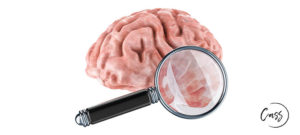
As much as we normalise regular drinking and it is very much an accepted part of our Aussie culture, when alcohol consumption becomes very habitual, it can get in the way of your fitness goals (or any other goals) and compromise your health. Typically, the more you drink the more you drink, meaning that your tolerance for alcohol increases with repeated use and you find you need to drink more to achieve the same effect. You might have noticed that your ‘Friday drinks’ have moved up on the calendar to Wednesday night or your one glass has turned into three or four. Typically, the longer you keep up the habit, the more you’ll be frustrated by your apparent inability to stop as alcohol starts feeling more and more necessary in your life. If you’re frustrated with alcohol getting in the way of your ability to lose weight or you’re concerned that alcohol is becoming more a necessity than a luxury for you, there are lots of things you can do to kick the habit or cut back.
1. Set a goal
The important thing is to decide what kind of drinker you want to be. If you’re drinking daily, you might want to cut back to only drinking on weekends. If you drink on weekends, you might want to limit yourself to two drinks rather than finishing the whole bottle of wine. You may decide you want to stop drinking completely. Decide now on a goal even if it’s for 30 days or 90 days. If you’re concerned about your health, perhaps take yourself to the GP for blood and liver function tests so that you can go back and review your health improvements after a break from alcohol.
2. Know your triggers
Like any habit, there will be clear triggers that signify to you that it’s time for a drink. The trigger can be the time of day, day of week, another part of your normal routine (such as coming home from work) or certain people or places. The whole point of habits is that they bypass conscious thought so you don’t have to think about them. Knowing your alcohol ‘cues’ helps you to turn off autopilot and become more conscious of what you’re doing.
3. Understand the role of dopamine
All of your alcohol cues trigger the release of dopamine in your brain as it begins anticipating the reward of alcohol. People often don’t realise that dopamine is not just a reward chemical released after you’ve had a drink, it is a powerful motivating force towards your reward so it will kick in with only the thought of alcohol before you’ve gone anywhere near a drink. When you notice cravings, recognise dopamine is at work – it’s just a chemical process in your brain, nothing more.
4. Practise mindfulness (urge surfing)
There is a practise in mindfulness called ‘surfing the urge’ which is a highly effective way to manage those cravings when they arise. A craving is no more than a bunch of thoughts in your head and sensations in your body. Most people go to battle in their head and cravings ‘win’ so instead you should work on being curious about the sensations in your body, breathing into them, allowing them and watching them pass. Most cravings will arise and fall away within 20 minutes if you drop the struggle and breathe through them. Google ‘urge surfing’ for more on that.
5. Find alternatives
When you know what primary function alcohol is serving in your life, you can come up with alternative activities to meet that need. If it’s stress relief, you might try having a hot shower, meditation, reading a book, listening to music or getting outside and playing with your dog. If alcohol is the centre of your social world, you might find other ways to connect with people like going for a walk or meeting for coffee.
6. Get inspired
Loads of books have been written by women who have successfully given up alcohol. One that many people credit for fundamentally changing the way they think about alcohol is ‘This Naked Mind’ by Annie Grace. Reading about other people’s experiences can inspire you to keep on track and remind you of the reasons why you’re doing it.
7. Don’t stress about slip-ups
When trying to change a habit, most people slip up many, many times. The most important thing is to not see it as a failure or that you’re weak or that the whole thing is hopeless. Remember that if alcohol is the tool you use to manage uncomfortable feelings, then making yourself feel bad is only going to drive you straight to alcohol. Every slip up is an opportunity to learn if you are open and kind to yourself and willing to get back on track.






